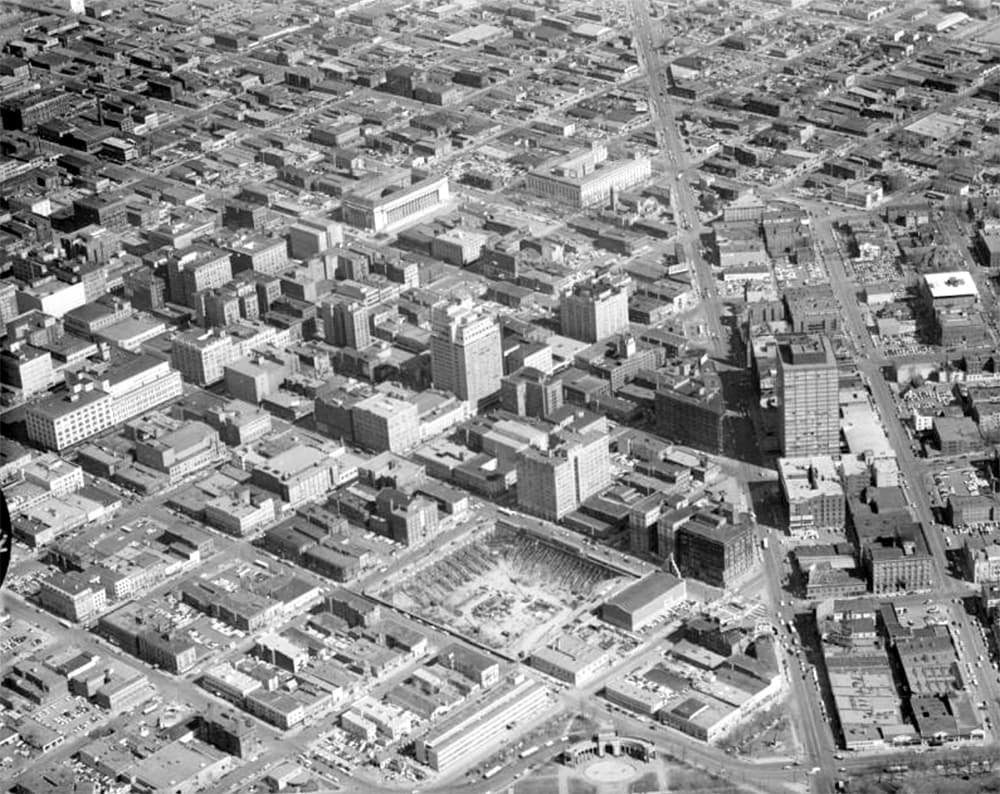Today's news roundup includes Denver's plan to make sidewalks more attainable, the huge but unrelated messes looming for the Colorado River and the marijuana industry, the Democratic agenda for Colorado schools, the revamp of Federal Boulevard and also a space satellite. And more.

Denver may help bring sidewalks to more low-income areas.
The city requires homeowners to build and maintain the sidewalks along their property, which means that low-income neighborhoods tend to have worse sidewalks. Councilman Paul Kashmann says the mayor has agreed to consider helping landowners with less build sidewalks. (Denverite)
The marijuana banking situation may get even messier.
Cannabis businesses have few places to put their money, as only 301 U.S. banks will do business with the federally illegal industry. With five states considering legalization this November, the national weed economy could soon triple to $18 billion or larger. For now, businesses are turning to credit-card middlemen, but a solution may be on the horizon: Small and midsize banks and credit unions are sniffing out this new market, as Bloomberg reports in a sizable new feature. (Bloomberg)
Love amid an exodus:
I wrote about two Bhutanese couples with one intersecting story. (Denverite)
One of Denver's historic cathedrals needs a few million.
The renovation of the aging Cathedral Basilica of the Immaculate Conception could cost $5.6 million, as Adrian Garcia reports. The archdiocese isn't providing much help, instead pouring money into the fight against the "right to die," as CPR's Ben Markus added.
Gigabit is expanding.
Comcast currently offers gigabit-speed internet service (about 125 megabytes per second, in other words) for $300 a month. Its new gigabit service, announced today, should be cheaper and much more widely available. No prices announced yet, but Comcast is charging $70 per month in Nashville for the first three years of this service. (DP)
Our former governor and former mayor are in the middle of a marijuana fuss.
Bill Owens and Wellington Webb appeared in an ad discouraging legalization in Arizona. Some of their points are questionable. Several Colorado legislators are unhappy. (Denverite)
What would Democrats do for education?
If they take the legislature, you might expect them to free up short-term money for schools; kill the idea of "equalizing" funding for charter schools; reexamine standardized testing; and make it easier to get a teacher's license through alternative routes. Lots more details here. (Chalkbeat)
There's going to be trouble on the Colorado River.
A new University of Colorado study finds that the river doesn't have enough water to meet what's been promised to six states and Mexico. Further drought could mean cuts to Arizona and Nevada's water supply allotment equivalent to about 625,000 homes' usage. (AP)
Two Colorado companies are part of a mission to pull weather observation technology out of the 1980s.
I really enjoyed Chloe's feature on the GOES-R space mission, which should provide a huge technological leap for forecasting. (Denverite)
Aurora to get a local food co-op.
Plans for the 10,000-square-foot Nourish Community Market are big news for northwest Aurora and Stapleton. (Aurora Sentinel)
Big Soda-funded researchers say not to worry about diabetes.
Boulder is voting this November on a tax on sugary drinks. The central argument is that higher prices will drive down consumption, making people healthier. Beverage producers seem to be fighting this idea with some research of their own. Of the 26 recent studies that found no connection between soda and health problems, every single one was carried out by researchers with financial ties to the beverage industry, according to new research in the Annals of Internal Medicine. (NYT)
Gov. Hickenlooper wants to bring business leaders to government.
The Governor's Fellowship Program connects private-sector managers and executives with people "at the highest levels of state government" in an effort to get them into government employment. The model: Lt. Gov. Donna Lynne took a big pay cut coming from Kaiser Permanente. (Governing)
A gorgeous portfolio of historic photos.
Harry Mellon Rhoads was one of Colorado's photojournalism greats. Kevin Beaty picked his favorites of Rhoads' work. (Denverite)
Drivers struck 28 people on Federal Boulevard last year.
That's part of the reason the city is drafting a major revamp of Federal, which also is one of Denver's busiest bus routes. The plan may include lanes that are sometimes dedicated to buses and improvements for pedestrian safety, but the cloverleaf intersection with Colfax will remain a major barrier, as David Sachs points out in his detailed summary of the project. (Streetsblog)
Better get rid of that sixth cat.
Only five felines are allowed by Denver's rules. Megan found out what it's like to live at the limit. (Denverite)
Today's soundtrack:
Solange - A Seat at the Table












